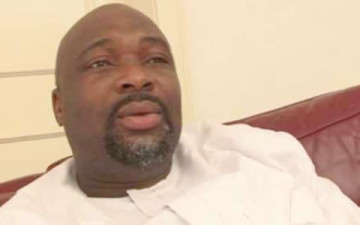Initially when I saw Tim Newman’s article, as a patriotic Nigerian who likes to think he has class, I was tempted to be offended. But when I read it, I realized that Tim Newman should be knighted or conferred with a national honours at least, maybe GEFR. He truly is a Grand Expatriate of the Federal Republic. Last week Ahmed Indimi whose father has an oil bloc showed us his American account balance of $99,000,000. He uploaded the photo to Instagram. Also last week, the Chairman of a Local Government in Akwa Ibom was arrested in an east-coast American airport whilst laundering $82000.
Also there’s the ASUU brouhaha where Nigerians just learnt the government is still stealing money from universities. Not a shocking revelation considering even the Lagos State government steals from secondary schools. Facts Only.
The reason the greatest black nation ever has not come of age is because as Tim Newman rightfully says we are a classless society. We are also ‘loveless’, we do not love ourselves. The black man is notorious for being a self-hater. Think bleaching, black on black crime, slave trade, the police extortion video you saw last week and the week before that etc etc.
I hate to write a new article when Tim has done such a great job. Here is the excerpt I enjoyed most from his piece:
Nigerian senators – of whom there are 109 – enjoy an official package worth $1.5m per year, which they recently requested to be increased to $2.2m per year. By contrast, the US President gets an annual salary of $400k. Given the unofficial incomes of a Nigerian senator through graft and backhanders is probably 3-5 times that, we can probably estimate most of these guys are taking home something in the order of $4-5m each year. Yet they put in for a 46% increase, in a country where 45% of the population lives beneath the poverty line. This is hardly surprising for a group of politicians, and far from unique to Nigeria. The problem is, this behaviour is repeated through every strata of society from the very top of the government to the lowest street urchin: whatever is there, I want all of it; and I want more. I saw wealthy middle-class Nigerians move to ensure drivers did not enjoy a fringe benefit worth about $10 per week. If you threatened to report a low-level official for corruption, he would usually tremble with fear of his boss finding out: not because his boss shuns corruption, but because he will want to know why the proceeds of this particular scam haven’t been coming to him. We already had the example of a multi-million dollar oil cargo being held up until somebody’s relative received a kick-back worth $10. If any amount of new money arrives in the economy – due to a new oil project, for example – those who are already wealthy, via their societies, organisations, unions, and political connections will ensure 100% of that new money will go to them. Insofar as sharing and dividing the spoils goes, it is between groups who are already of the same wealth. If any trickles down to the next layer, it is almost by accident, and to be corrected at the first opportunity.
I came to the conclusion about 2 years into my assignment that Nigeria is probably the only genuinely classless society I have seen. Class is very different from wealth. Upper class people can be dirt poor (bankrupt dukes) and lower class people can be fabulously rich (Russian oligarchs). Class is about behaviour and attitudes, not wealth (a point made very well in Kate Fox’s excellent book Watching the English). And insofar as behaviour goes, I didn’t see a shred of difference between the top politicians, down through the officials in the national authorities, through the middle class professionals, through the service providers, right down to the area boys. The behaviour was identical across all strata: I want more money, and I will do absolutely anything to get it. If you were to replace the politicians – let’s say our 109 senators from before – with 109 random people from the Nigerian citizenry, you would get no change in behaviour. You could repeat the experiment a thousand times, and you would get no change. There is no ruling class in Nigeria, there is just a set of rulers. Where any change is expected to come from I don’t know.
I believe one of the root causes is the bizarre situation where being dishonest is not socially frowned upon. Not really, anyway. If somebody is caught with his hand in the till, he is not shunned by his peers. The whole situation is treated with utter indifference, and sometimes admiration (if the scam is particularly imaginative). Societal pressure plays an enormous role in shaping the behaviour of a population, probably more so than the brute force of the law, and whilst all Nigerians complain about the crime and dishonesty so prevalent in their country (it affects them far more than the expats), they remain utterly silent when a perpetrator is identified from within their peer group. At best, you’ll get a shrug and a statement to the effect of “that’s just how it is”. If you’re a Nigerian caught running a scam against your employer, your colleagues aren’t going to think any less of you.
Read Tim Newman’s entire article here

